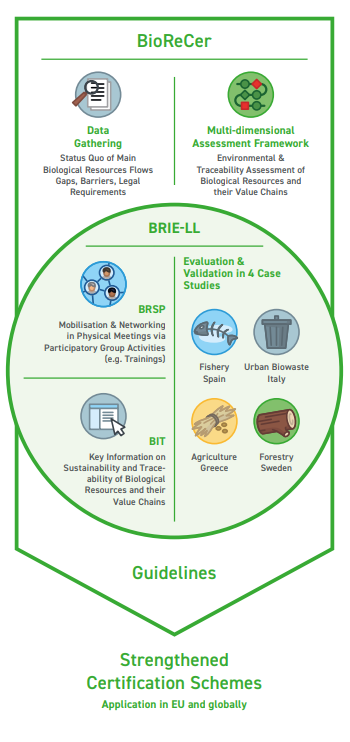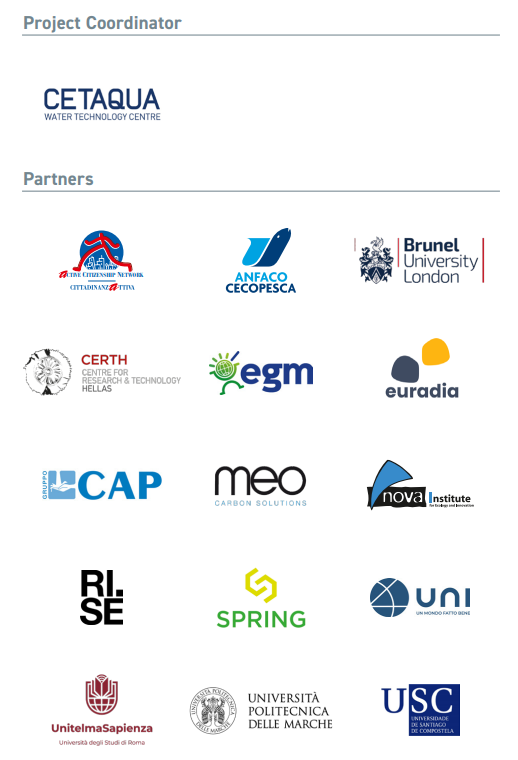Background
A circular economy is sustainable if it is able to minimise waste and simultaneously maximise value from (organic) waste materials. To realise this goal, organic waste materials require sufficient assessment. Further, the tracking and traceability of biological feedstock need to be guaranteed, and the respective bio-based value chains must be certified in a practical way. However, current certification schemes need to be strengthened since not all of them sufficiently meet the specific requirements of organic resources.
Objectives
- Complement current biological resources certification schemes by including new criteria for certifying biological resources’ sustainability, origin and traceability and ensure applicability at the EU and global scale.
- Increase transparency of the value chains for bio-based products by including information on environmental performance.
- Track the traceability of biological feedstock in order to optimise supply chain processes, meet health and safety standards, assess environmental impact and promote biological feedstock in the market.
- Increase social acceptance of bio-based products in new markets, thus contributing to environmentally conscious consumption decisions.
- Reduce Greenhouse Gas emissions and water pollution.
- Replace fossil-based resources with biological alternatives.

The BioReCer Innovation Eco-system Living-Lab (BRIE-LL)
For the assessment of environmental sustainability and tracking and traceability of biological resources, BioReCer will develop the innovative digital web portal BRIE-LL. It functions both as a virtual meeting place for the BioResources Stakeholders Platform (BRSP) and as a BioReCer ICT tool (BIT). BRIE-LL will mobilise the BRSP through participatory group activities (e.g. workshops, networking and training capsules), while BIT is an auto-evaluation tool based on several machine and deep learning algorithms that provide stakeholders with key information on the environmental performance of bio-based value chains.
Case Studies
BioReCer will evaluate and validate the multidimensional assessment framework by BRIE-LL with four case studies in different EU countries. These were selected based on their geographical distribution, biomass type and source, and associated bio-based value chains.
Case Study 1: Fish canning industry and urban/industrial sewage sludge in Galicia, Spain.
Case Study 2: Urban biowaste and wastewater from biorefineries in Lombardia, Italy.
Case Study 3: Agricultural waste in Central Macedonia, Greece.
Case Study 4: Residual streams from the forest industry in Västernorrland, Sweden.
Project Partners

In BIORECER, Cittadinanzattiva-ACN will work in WP4 and WP8, mainly dedicated to communication and dissemination and stakeholders’ involvement.

BioReCer received funding from the Horizon Europe framework programme under the grant agreement number 101060684.
#BioReCer September 2022 – August 2025




